Away from traditional assessments which invariably compare children, NGS highlights progress, marks gained against one’s own personal baseline, documented objectively at the beginning and end of each term. This inspires all children to excel in their studies. The GEMS "Dynamic" assessment reports build an intrinsic desire to excel and create the feeling “I can” instead of “I can’t”. NGS believes it important to preserve a child’s sense of his / her inner greatness and to continually nurture confidence through self-knowledge and clearly defined parameters for success that make each child a partner in the learning process.
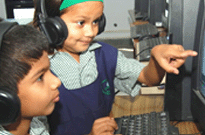
Step 1: Students Take A Baseline Survey
Step 2: Students Set Goals
Step 3: Students Learn With Their Personalised Materials
Step 4: Students Take A Progress Survey
Step 5: Students Celebrate Progress
Focus is on the core subjects of English, Hindi and Mathematics, to gain mastery in the fundamentals. In the primary classes, focus is upon building a solid foundation in the 3R's along with computer literacy through hands-on and experiential learning. Other subjects are taught as part of thematic work in mixed age settings. Team work, resourcefulness, critical enquiry and leadership skills are thus developed.
Students Take A Baseline Survey
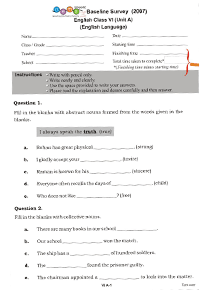
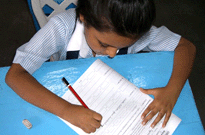
Standardised Surveys At The Beginning of Each Term
Based on the results of their baseline reports, every child is matched up with personalized learning materials called Perbooks in priority groupings which are below class level for remedial needs, then at the class level. Once these concepts are mastered, children can also work on some concepts above class level in an optional category.
GEMS "Dynamic" Personalised Diagnostic Report
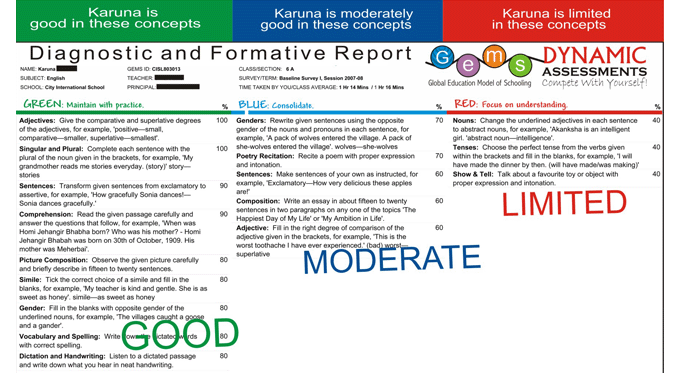
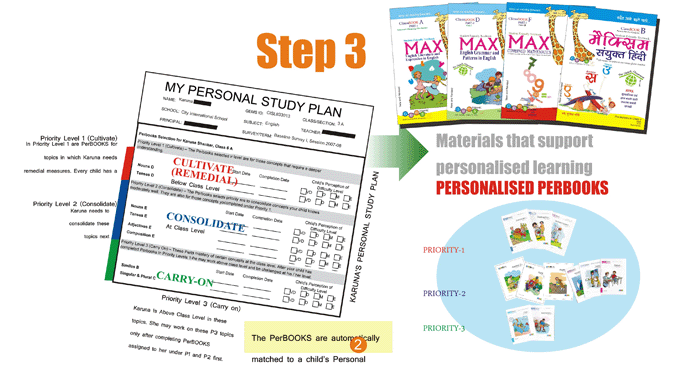
NGS provides on-going diagnostic reports and information to its students to help them become more effective partners in their learning process. It makes them self-aware of their personal strengths and areas of improvement. When this is coupled with study materials that are at each child's level, every child is challenged to succeed at his or her level. Each child gets his / her personalized set of materials to work with besides those for the class.
By setting the parameters for success as competition with oneself, not others,
the bar is raised higher for each child. Such methods and processes build an intrinsic desire to excel. Every child progresses and every child shines like a GEM through the GEMS Programme of Personalised Learning which is a brain-child of Dr Sunita Gandhi. This approach is now being piloted in the UK schools.
The GEMS programme helps students set goals and time manage progress

All students of a class make a paper cut out, for example, a flower cut out with the number of petals equal to the number of Perbooks they need to complete in a term. All these are pinned to a soft board in the class.
The students fill out each petal as they complete each Perbook (once accepted by the teacher as complete). The short term goal is to complete one Perbook per week and the long term goal is to complete all Perbooks allocated for the term. The students can always add to the allocated set of Perbooks by adding more petals.
Look, for example, that Pupil 2 on the right has completed 8 out of his 9 Perbools for the term in just one month! He can continue to do Perbooks at higher levels beyond those completed. Pupil 1 has completed according to the given goals but Pupil 3 is falling behind goals for which some remedial action is required.

Pupil 1 has completed his 4 Perbooks in a month (one per week).
Pupil 2 has done 8, or twice as many as required to do.
Pupil 3 has done only half as many as assigned. This pupil clearly needs further motivation.
Instead of waiting for the end of a term, teachers can motivate and take remedial action immediate when effort is lacking. The students learn important life-skills goals. They learn to set manage time and self-evaluate their own progress. Each one is propelled to move forward in a highly intuitive way.

SET GOALS
MANAGE TIME
SELF-EVALUATE
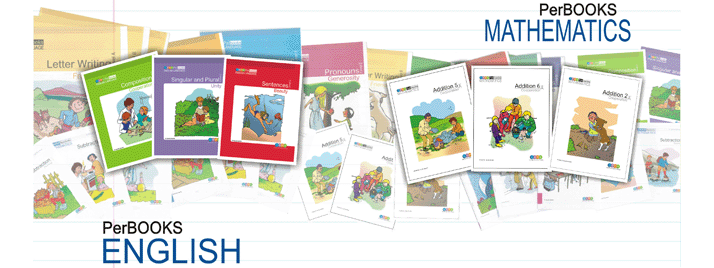
At the end of each term, a progress survey is taken. Every child's value-added is calculated by comparing this with their personal baseline. Both effort and improvement are celebrated and less emphasis is placed on accomplishment.
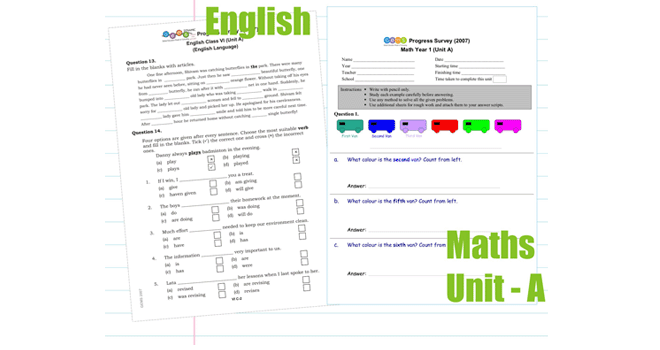
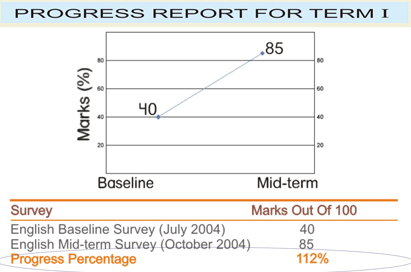
Copyright © 2012 Nurture Global School All rights reserved.